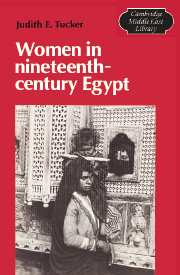Book contents
- Frontmatter
- Contents
- List of illustrations
- Acknowledgments
- List of abbreviations
- Note on transliteration and dates
- Introduction
- 1 Ploughs and shares: women, agricultural production, and property
- 2 Spindles and songs: women in urban occupations
- 3 Private and public life: women and the growth of the State
- 4 Women, resistance, and repression
- 5 The practice of slavery: women as property
- Conclusion
- Appendix: The court records, overview and sample
- Notes
- Glossary
- Bibliography
- Index
Conclusion
Published online by Cambridge University Press: 28 October 2009
- Frontmatter
- Contents
- List of illustrations
- Acknowledgments
- List of abbreviations
- Note on transliteration and dates
- Introduction
- 1 Ploughs and shares: women, agricultural production, and property
- 2 Spindles and songs: women in urban occupations
- 3 Private and public life: women and the growth of the State
- 4 Women, resistance, and repression
- 5 The practice of slavery: women as property
- Conclusion
- Appendix: The court records, overview and sample
- Notes
- Glossary
- Bibliography
- Index
Summary
Women of the peasant and urban lower classes in Egypt lived through a period, from 1800 to 1914, of economic, political, and social transformation. The integration of Egypt into a European economic system, entailing the conversion of a significant part of Egyptian agriculture to cotton exports and the erosion of the indigenous craft industry, was accomplished in these years despite the abortive attempt of the Egyptian State under MuḤammad ‘Alī to harness production to its own ends. Consolidation of land, the establishment and subsequent diminution of large-scale industry, and the migration of significant sections of the population were actually abetted by the policies of a centralized and bureaucratic State under MuḤammad ‘Alī and his successors, and, after 1882, by British colonial rule.
The four dimensions of women's roles and status – access to property, family relations, participation in social production and the public sphere, and ideological definitions – both reflected and structured the impact of these changes on women and the family. First, women's access to property was buttressed by Islamic laws which acknowledged women as heirs to family property and by marriage customs which bestowed the mahr (bridal gift) upon the bride. These claims to family property rested on the woman's identity as a family member, an identity ostensibly based on bonds of blood or marriage; in the actual determination of women's rights to property, however, the family and courts also weighed the woman's contribution to family production. Daughters of peasant families who had married into other households found that their rights to the property of their natal family might be restricted or bypassed altogether, while their claims to property in the marital household were mediated through their husbands.
- Type
- Chapter
- Information
- Women in Nineteenth-Century Egypt , pp. 194 - 198Publisher: Cambridge University PressPrint publication year: 1985



